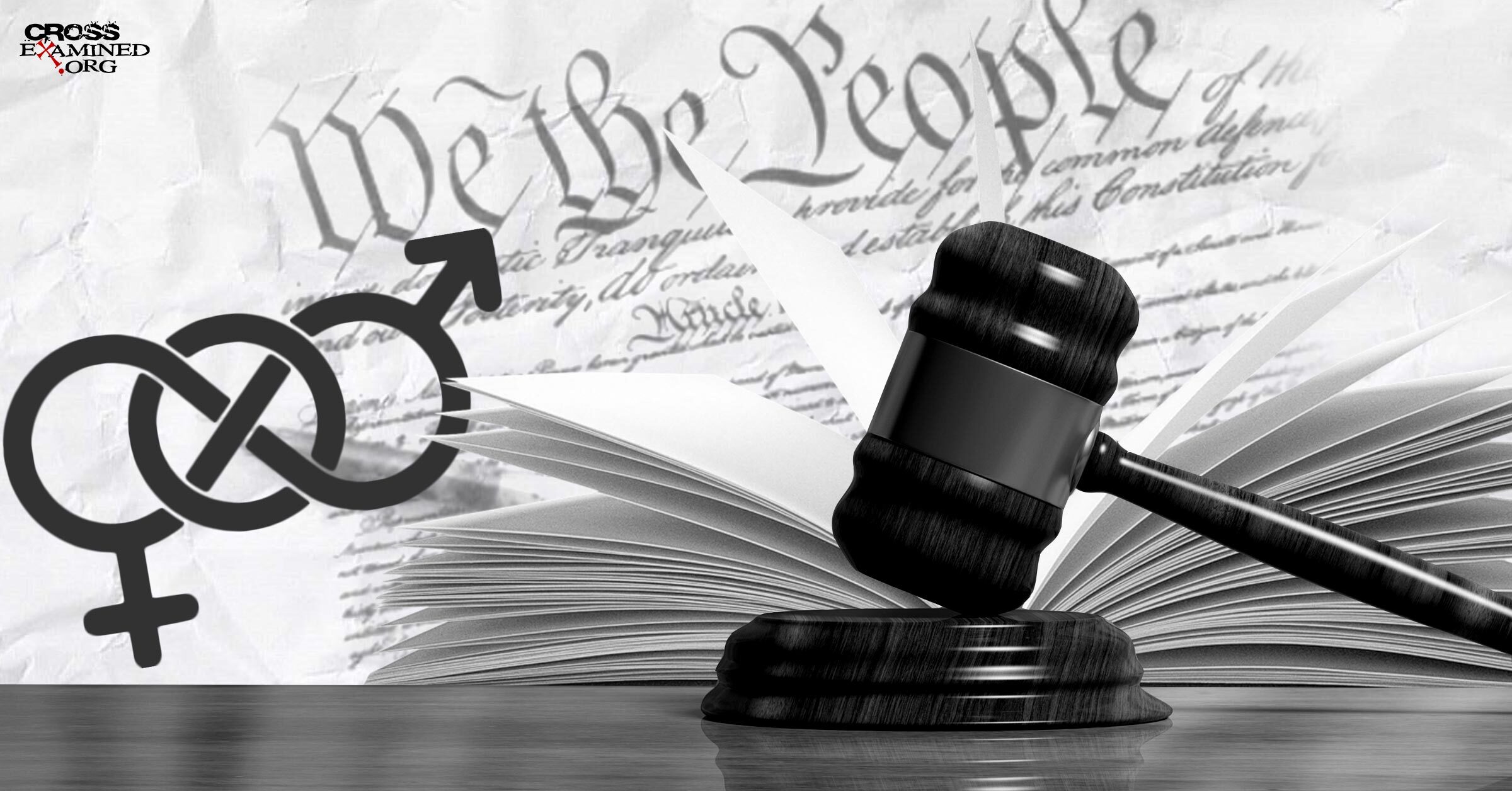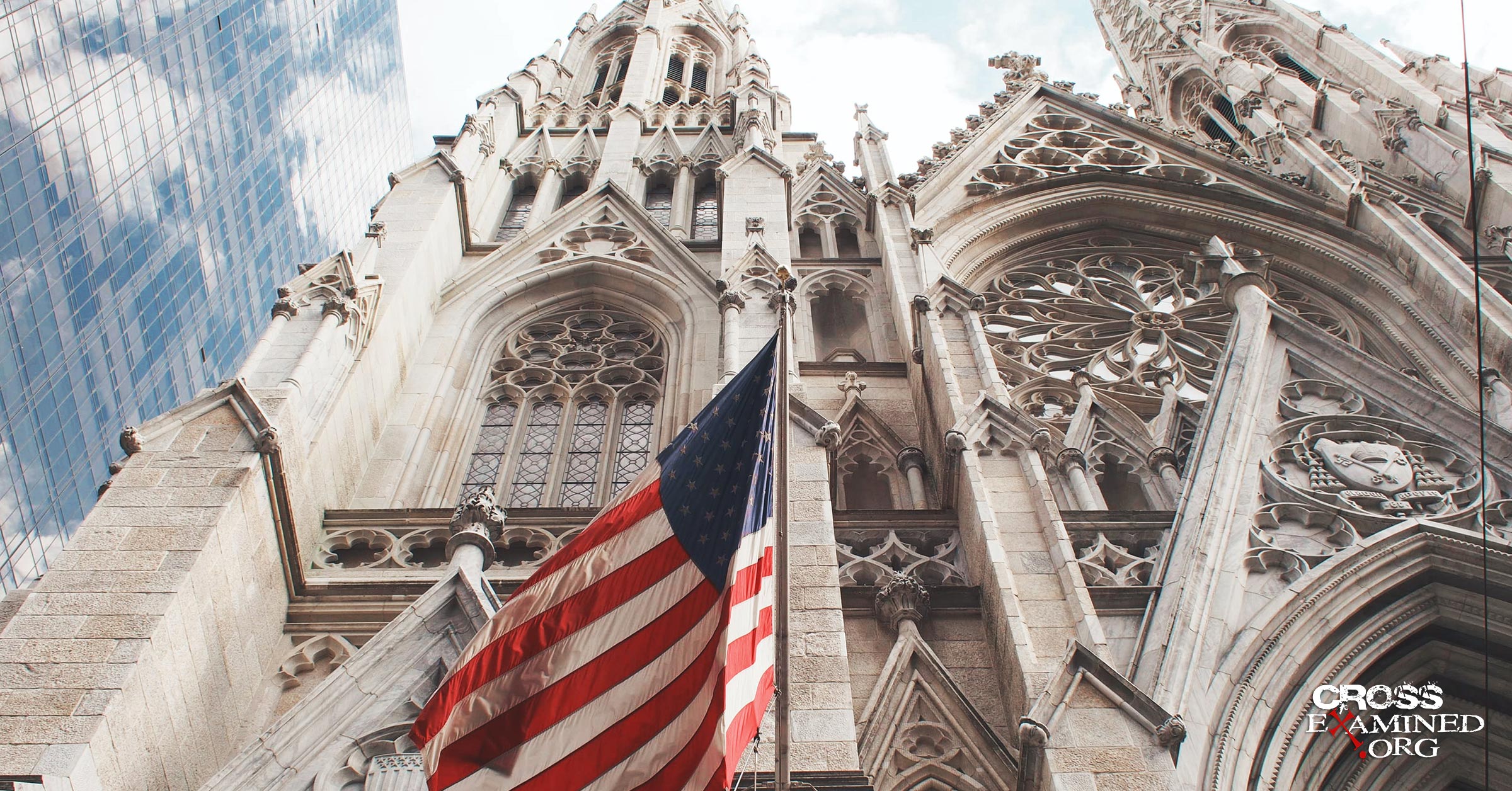Have you spent much time thinking about marriage lately? You should. It doesn’t matter if a wedding is something in your future or in your past. It doesn’t even matter if you have no intention of ever getting married. The fact is that the institution of marriage is important to us all. Our culture has devalued it in many ways, but marriage is the foundation of a healthy society. For that reason, we all ought to contemplate the true meaning and value of marriage.
An Honor And A Privilege
My wife and I have been happily married for 33 years. When you’ve done anything for that long, it’s easy to think you have it all figured out. But in July, my son and his fiancé asked me to perform their October wedding ceremony. Suddenly, I found myself thinking about marriage nearly every waking minute.
It was an honor and privilege to take part in my own son and daughter-in-law’s wedding. But it ended up being more than that. Preparing what I wanted to say to them on such an important day became a powerful reminder for me about the eternal significance of marriage. The whole experience reminded me of some things I had been taking for granted for far too long.
More Than Two Stories Becoming One
The unlikely circumstances that led my son and his wife to find each other and fall in love make for quite a story. They both experienced setbacks and disappointments in their young lives. Their goals and aspirations changed. They made decisions that brought them to unpredictable places. But all those things had to be just the way they were or they would have never even met each other. Reflecting on their lives in life’s rear-view mirror was breathtaking. It was a stunning example of how God orchestrates circumstances for his purposes.
No fiction writer could have written a more compelling story than the one that ended with them exchanging vows on a beach in Florida. You can’t make up stories like that. But the sanctity of marriage does not just depend on two individual stories becoming one.
The beauty and design of marriage — it’s mystery and meaning — are rooted in a greater story. If you don’t understand that, you miss the significance of marriage altogether.
The Grand Story
We are all part of that bigger story. It’s a story that began with a God who wanted to allow free-will beings to choose to follow him. He designed a world for that purpose. And when it was exactly the way he wanted it, he created two very different beings to begin multiplying and filling it. These two complemented one another in every way — physically, psychologically, and spiritually. So, God joined them together in the world’s first wedding.
Later, that same God chose to step out of eternity to implement his plan of redemption for all of us. And when he was ready to begin his ministry, he chose to show the world who he really was by changing water into wine … at a wedding.
We are told the story will eventually come full circle. The descendants of that first couple who have chosen to devote themselves to God forever are called the church. And the church will be joined together for eternity with Christ. The Book of Revelation refers to the church as the “bride of Christ.” Jesus is the bridegroom.
In other words, the Grand Story begins and ends with a wedding.
A Picture Of Eternal Life
It seems like God really likes weddings. That’s because every wedding is meant to be a small picture of the ultimate wedding. It is in that context that all of us should think about marriage.
The covenant of marriage honors the personal stories of individual men and women. But it does so in light of the Grand Story of God’s redemptive love.
When you think of it that way, you understand marriage as it was meant to be — a God-centered, submissive commitment for life.
God’s Spirit At The Center
Marriage should never be an agreement between two “needy” people who are looking for someone else to “fill up their tanks.”
Only the Spirit of God can do that.
Both the bride and groom must be people who have considered life’s biggest questions…together. They don’t have to agree on everything, but neither can they redirect worldviews that are on opposite trajectories. The Bible calls this being “unequally yoked.” It’s a picture that any ancient-near-east, agrarian listener would have understood immediately. Think of two oxen pulling a cart in different directions. It doesn’t work. It only leads to trouble.
With God at the center of the relationship, drawing closer to him can’t help but draw husband and wife closer to each other.
A Covenant Of Submission
To the world — and the culture we live in — nothing sounds more old archaic, ridiculous, oppressive, or horrific than the words of Ephesians 5:22:
“Wives, submit to your husbands.”
But that’s because the world has a short attention span. Three sentences later, Paul continues:
“Husbands, love your wives, as Christ loved the church and gave himself up for her …”
Do you want submission? There is no greater form of submission than for a man to offer up his own life for his wife.
But there’s more.
The sentence that leads into this passage says that we are to “give thanks always and for everything to God the Father in the name of our Lord Jesus Christ, submitting to one another out of reverence for Christ.”
This is not a one-sided submission. It’s not even a fifty-fifty proposition. Marriage is a covenant in which both parties agree to give 100% of themselves.
The Beautiful Fruits Of The Covenant
The Greek word for “submit” that Paul uses in this passage has its roots in a military term. It’s about surrendering your independence to be part of something greater. It’s all about grace, forgiveness, patience, and compassion.
It has all the features of an authentic friendship — constancy, transparency, and sympathy.
This covenant is nothing like the worldly promise too many see in their marriage vows — a promise of conditional love that feeds your happiness in the moment. Instead, it’s a love that will include painful days and survive hurt feelings. It’s a love that faces obstacles and tough decisions together. This covenant is for future, sacrificial love that doesn’t depend on circumstances.
How many marriages built on that kind of selfless bond do you think would fail?
The Power Of The Covenant
When you are enmeshed in an intimate, selfless relationship like that, both participants take on superpowers. You get two of them. First, you have the capacity to hurt each other’s feelings more deeply than any other person on Earth. Second, you have the power to heal, affirm, and build each other up more than anyone else ever could.
Married folks need to be forever aware of their superpowers. They have the capacity to make or break a marriage. Never get near the first one. And use the second one every chance you get.
The Purpose Of Marriage
Can you even begin to imagine the kind of society we would be living in if everyone took this view of marriage to heart?
When I say that, I’m not trying to paint some kind utopian picture of heaven on earth. The truth is that fallen human beings would still be involved. But the beauty of the marriage covenant is that it is a vehicle for tempering our sinful natures. Being committed to a lifetime of submission to another makes one a better person. I may not be a good man, but I know that I am a better man for having married my wife. Every aspect of our complementary nature forces me to be.
And that’s why marriage matters. It creates the building block of a stable, thriving society — the human family. Marriage is the cement that holds that society together. The union of a husband and wife is supposed to be a snapshot of the church’s ultimate reunion with its Creator. It builds communities that are focused on God. It makes us think eternally.
And that’s the kind of thinking we should all be doing.
Recommended resources related to the topic:
How to Interpret Your Bible by Dr. Frank Turek DVD Complete Series, INSTRUCTOR Study Guide, and STUDENT Study Guide
Correct, NOT Politically Correct: How Same-Sex Marriage Hurts Everyone (Updated/Expanded) downloadable pdf, PowerPoint by Dr. Frank Turek
How Can Jesus Be the Only Way? (mp4 Download) by Frank Turek
Bob Perry is a Christian apologetics writer, teacher, and speaker who blogs about Christianity and the culture at truehorizon.org. He is a Contributing Writer for the Christian Research Journal and has also been published in Touchstone and Salvo. Bob is a professional aviator with 37 years of military and commercial flying experience. He has a B.S., Aerospace Engineering from the U. S. Naval Academy, and a M.A., Christian Apologetics from Biola University. He has been married to his high school sweetheart since 1985. They have five grown sons.
Original Blog Source: https://bit.ly/2NgKbnu










